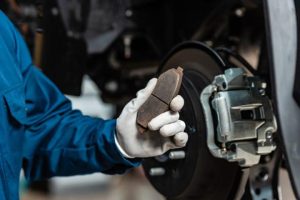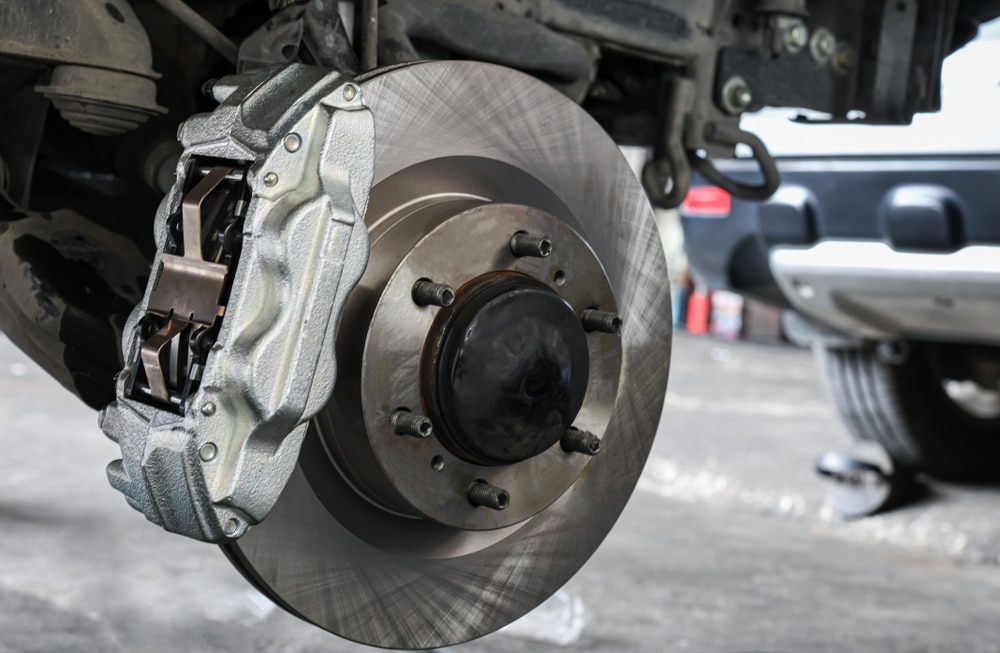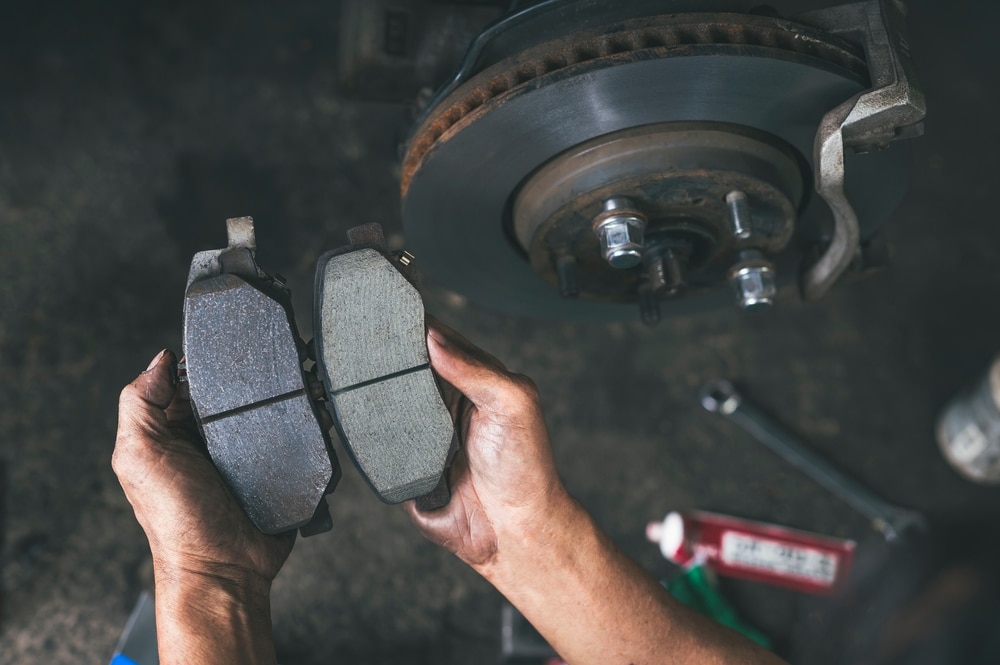Ultimate Beginner’s Guide to Replacing Mercedes-Benz Brake Pads
The condition of your Mercedes Benz’s braking system is crucial for safe driving on the road. Brakes play a vital role in controlling the vehicle and avoiding accidents, which is why regular maintenance checks are necessary.
In this blog post, we’ll provide the ultimate guide to help you understand when you should replace the brake pads on your Mercedes-Benz. We’ll cover topics such as how brake pads work, the consequences of driving with worn brake pads, the recommended interval for replacing brake pads, the type of brake pads to use, and whether you should replace them yourself or take your vehicle to a professional. We’ll also provide expert advice on the best brake pads for your Mercedes-Benz model. Read on to learn more.
Over time, brake pads and discs wear out, making the system less reliable. It is important to have your brakes inspected by professionals to ensure they are in good condition and replaced when necessary. South Coast Garage offers expert brake inspection and replacement services to keep you and others safe on the road.

How Do Mercedes-Benz Brake Pads Work?
Brake pads in a Mercedes Benz work by pressing against the brake disc to slow down or stop the vehicle. The brake pads are made of a high-friction material that generates heat and friction when pressed against the disc, creating a braking force that slows down the wheels. Over time, the brake pads wear down and need to be replaced to maintain optimal braking performance and ensure safety on the road. It’s important to have your brake pads inspected regularly by a qualified technician to ensure they are in good condition and functioning properly.
Consequences of Driving with Worn Out Brake Pads in Your Mercedes-Benz: A Safety Hazard
Maintaining your braking system is crucial to ensure your safety and that of others on the road. For Mercedes Benz owners, worn brake pads can lead to metal-on-metal grinding which not only damages the discs but also produces excess heat that can warp and crack the disc. At South Coast Garage, we understand the importance of regular brake checks and replacements to avoid costly repairs in the future.
You can spot signs of worn brake pads if you experience screeching while braking, heavy vibrating or your car pulling to one side as you press down on the brake pedal. Additionally, if it takes longer than usual for your brakes to slow your car down or if a warning light comes on, it’s time to bring your vehicle to us for an inspection. Don’t let worn brake pads compromise your safety – trust the experts at South Coast Garage for all your Mercedes Benz braking needs.
When to Replace Brake Pads on Your Mercedes-Benz for Optimal Safety and Performance
Determining the exact mileage for how long your Mercedes Benz brakes will last can be challenging, as several factors influence their lifespan. Typically, brake pads are expected to last between 25,000 and 65,000 miles, but some like carbon ceramic pads can last up to 80,000 miles. It’s always best to refer to the manufacturer’s recommended service schedule for your brakes, which can be found in your Mercedes-Benz owner’s manual.
Various factors can impact how long your car brakes last, including your driving habits, environment, and brake pad material. Heavy braking, stop-and-go traffic, and city driving can all result in more wear and tear on your brakes. Carbon-ceramic brake pads last longer than standard metallic pads but are generally more expensive. For advice on selecting the right brake pads for your Mercedes-Benz, contact us at South Coast Garage today.
Replacing Front and Rear Brake Pads on Your Mercedes-Benz: Is It Necessary?
It’s important to replace both sides of brake pads at the same time to ensure even brake wear and minimise changes in handling for your Mercedes Benz vehicle. Front brake pads wear out more often than rear brake pads due to the forces and weight they exert as the car tips forward under braking. It is not necessary to change the front and rear brake pads at the same time. But it is vital to have the rear brake pads and discs inspected if you are having the fronts replaced, and vice versa. This ensures your Mercedes Benz can stop safely in a hazardous situation where excessive braking is required.
Types of Brake Pads for Your Mercedes-Benz: Which One Should You Choose and Why?
Although they are a relatively new technology, ceramic brake pads have become the preferred material for many luxury vehicle brands like Mercedes Benz.
The other types of brake pad materials used in vehicles include organic, metallic, and semi-metallic brake pads.
Organic brake pads are made from natural materials like glass, rubber, and resin. They tend to be quieter and produce less dust than other types of brake pads but may not last as long and may not perform as well in high-performance driving conditions.
Metallic brake pads are made from metal fibres, copper, and graphite. They are known for their durability and ability to perform well under high temperatures but can be noisier and produce more dust than other types of brake pads.
Semi-metallic brake pads are a combination of organic and metallic materials. They offer good performance and durability but can also be noisier and produce more dust than organic brake pads.
Each type of brake pad material has its own advantages and disadvantages, and the best choice for your Mercedes vehicle depends on the recommended manufacturer guidelines. It’s important to seek expert advice or visit us at South Coast Garage. Our team of experienced technicians have years of knowhow on Mercedes Benz brake pads and can recommend the best for your model.

Mercedes-Benz Brake Pads Replacement: DIY or Professional Service? What’s Best for You?
Changing the brake pads on a Mercedes vehicle is possible but not advised for the average person. The braking system in a Mercedes is complex and intricate, requiring specialised tools and knowledge to properly replace the brake pads.
The use of incorrect tools or techniques can lead to damage to the braking system, reducing the effectiveness of the brakes and potentially putting the driver and passengers at risk. It is important to have the brake pads replaced by trained professionals who have the necessary skills and experience to do the job safely and effectively. This ensures the proper functioning of the brakes and the safety of all who ride in the vehicle.
How Much it Costs to Replace Brake Pads on Your Mercedes-Benz
The cost to replace brake pads on a Mercedes-Benz can vary depending on a number of factors such as the model, year, and type of brake pads needed. However, at South Coast Garage, we offer competitive pricing and great value for our customers compared to the dealership.
We understand that every vehicle is unique, which is why we encourage customers to call us for a quote based on their specific car. Our experienced technicians will provide a detailed estimate and explain the options available to ensure that our customers receive the best service and value for their money. Contact us today to schedule an appointment for your Mercedes-Benz brake pad replacement.
Other Brake Maintenance Required for Your Mercedes-Benz: What You Need to Know
Brake maintenance is crucial for safe driving. The hydraulic system in vehicles relies on the master cylinder, brake lines, callipers, discs, and pads. Each component needs attention. The master cylinder powers the system, so it needs to be inspected for damage, as well as the brake lines and fluid for cleanliness. Callipers, discs, and pads work together to slow down the car, and each should be checked for damage, wear, and proper contact.
A maintenance schedule should be followed, with inspections required roughly every 10,000 miles for brake pads and fluid, every 25,000 miles for changing the brake fluid, and every 60,000 miles for resurfacing or replacing the discs, or as required. Neglecting maintenance can lead to expensive repairs, such as replacing both the pads and discs.
Your anti-lock braking system is also crucial for maintaining grip on the road. The diagnostics system on your Mercedes Benz vehicle should be evaluated and checked for any malfunctions. Finally, factors like driving habits, location, calliper corrosion, and installing cheap pads can all affect brake wear.
If you are ever in doubt that your braking system is not working correctly, contact us at South Coast Garage today. We are your Mercedes Benz specialist and can come up with a fix in no time so you can enjoy your next drive in peace, knowing that your brakes are working optimally.



